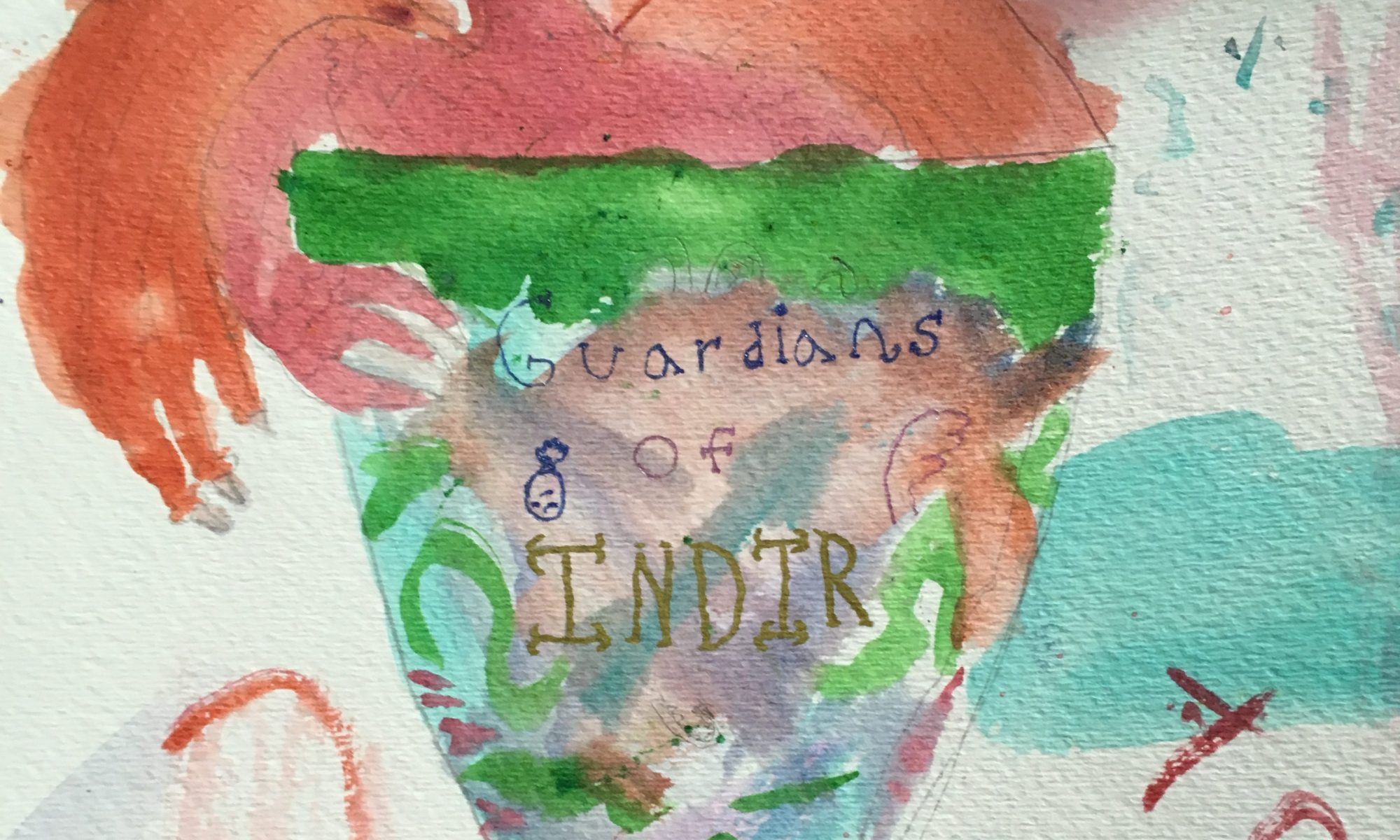Here’s episode 16, in which the Guardians follow Balasar and find a mysterious and very valuable puzzle in the dark. It’s the third and final segment taken from our fifth recording session for this D&D 5e campaign, from February 2018.
February was a short month for the podcast, as the DM and nearly all of the players attended DunDraCon 42 instead of recording a second session that month as would be customary. We aim to record two sessions a month, but that’s been more of a guideline than a rule, particularly as in the Winter and Spring school schedules were tight. At least one of the players was in the midst of their final semester of high school and preparing to receive a diploma, figuring out college logistics for the Fall, and so on.
Dealing with puzzles is always an interesting challenge in RPGs, both for the players and the GM. Puzzles serve as an interesting challenge for the players, rather than for the characters, as characters pretty much accomplish everything else through role-playing or in-game mechanics. But a puzzle that is solved with a die roll isn’t really a puzzle, it’s a skill check or an attribute test. And that gambling element of rolling dice that’s so fun with combat is disappointing if used to solve a riddle, say. Players want to use their brains!
Or more want to use their brains, anyway. Some players don’t like puzzles or riddles, because they break character. A hugely wise monk should have no difficulty solving a riddle, but the monk’s player might. The PCs shouldn’t be stopped because their players are having a bad day or are just tired. So what do you do as a GM to entertain the players with puzzles without blocking the PCs from advancing the plot? You can make the puzzles optional, of course. The PCs don’t HAVE to open that chest, for example; the treasure inside would be helpful, but it isn’t required to complete the adventure. As an alternative, GMs can present players with a puzzle, let them stew over it for a while, and then – only IF they are unable to figure out the puzzle on their own – the DM can ask for a relevant roll to try to get a clue, a partial solution, or even the full solution to the puzzle/answer to the riddle. That way, the players get a chance to solve it, but the puzzle didn’t stop the game cold.
All that assumes, of course, that the PCs have all the pieces necessary for the puzzle…

